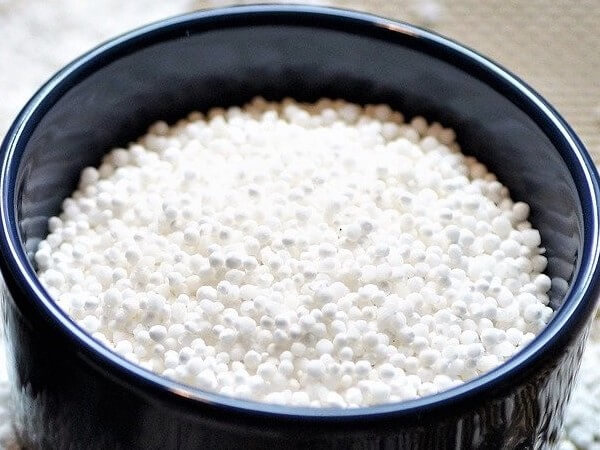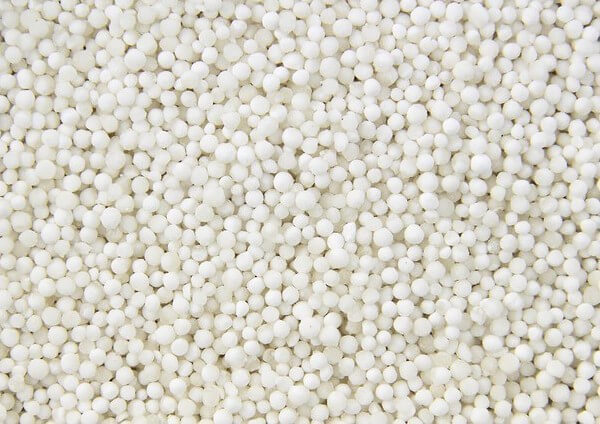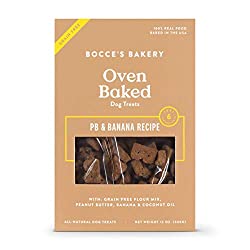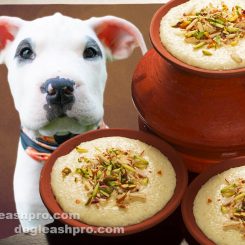
Can dogs eat Tapioca? Yes, dogs can eat Tapioca in moderation. Tapioca is safe and non-toxic for canine consumption as it is pure starch, but be sure your pups are not allergic or have negative reactions to it.
I was trying to make a stock-based sauce the other day and decided to use a bit of Tapioca flour to thicken the sauce. The sauce came out very nice and had a glossy shine to it. As I was making this sauce, I had accidentally spilled a bit of the Tapioca flour onto the kitchen floor. My Labrador attempted to lick it and her action made me wonder if Tapioca is safe for dogs.
In fact, Tapioca is often used as a starch base in many dog food products and is popularly used in Tapioca Pudding. While some may argue that pure starch is similar to sugar, which provides very little nutrients to dogs, let’s dive in to fully understand why Tapioca is safe for dogs to eat in moderation.
Table of Contents
Is Tapioca safe for dogs?
Yes, Tapioca is safe for dogs to eat because it has been processed and pressed thoroughly to eliminate any toxic chemicals that were originally in it. While dogs can eat Tapioca and most love it, Tapioca should not be a part of their main meal. Instead, it’s best to feed your pooch Tapioca in moderation.
Like Potatoes, Tapioca is a starchy veggie that contains good healthy carbohydrates. Let’s find out what Tapioca is and what it is made of.
What is Tapioca?

Tapioca comes from the cassava plant and is a starch extract. Cassava is a root vegetable found mostly in Brazil and other tropical areas throughout the Americas. It is widely eaten in the Caribbean and Latin America. Cassava has a brown fibrous skin. If you peel off the skin, the flesh is snowy white. It can be as long as 8 inches and as wide as 2 inches.
Most people know cassava as yuca, Tapioca, casabe, mandioca, and manioc. Eating cassava will provide lots of energy for dogs and humans alike.
What is Tapioca made of?
There are two common flavors of cassava root: bitter and sweet. In the U.S., many people eat the sweet cassava, which has a nutty, sweet, and earthy taste. The second type is the bitter cassava, which is usually processed into starches and flours to make pastries, breads, cakes, and used in dog food.
So Tapioca is essentially a starch that is extracted from the cassava root.
Since both types of cassava contain a chemical compound called hydrocyanic acid or sometimes called prussic acid or cyanide, which is very toxic and deadly and can cause cyanide poisoning. Make sure the cassava root is cooked or pressed thoroughly to remove this poisonous chemical compound.
Prussic acid can cause suffocation in dogs by restraining the oxygen intake at the cellular level.
You’ll find Tapioca in:
- Dog food (used as a thickener in canned dog food and kibbles).
- Flakes.
- Flour.
- Pearls (used in Boba or bubble tea and Tapioca pudding).
Is Tapioca good for dogs?
Yes, Tapioca is good for dogs that are allergic to grain-based starches in their food. One of the negative reactions to grain-based starches includes dogs losing their hair.
If your pooch has negative reactions from grain-based starches in their food, it may be a good idea to replace that with Tapioca as the starch base instead.
What is Tapioca starch?
Tapioca starch is also known as Tapioca flour. It is a great substitute for dogs that are allergic to grain-based starches like wheat flour.
Here are the nutritional benefits of Tapioca starch for our canine family members:
Nutritional profile of Tapioca
Tapioca provides a number of nutritional benefits for your furry friends. Let’s go over each one:
Good source of carbohydrates
Tapioca is low in both cholesterol and unhealthy fats, which makes it a healthy source of carbohydrates, similar to sweet potatoes and potatoes.
Packed rich in minerals
Minerals include iron, manganese, and calcium.
- Iron helps with the blood.
- Manganese helps your pooch absorb carbohydrates and protein from his food and digest it properly.
- Calcium helps build and maintain healthy and strong teeth and bones.
Contain micronutrients
Tapioca contains micronutrients such as Vitamin B6 and folate.
Dietary fiber
Fiber is key to consistent and proper digestion. Tapioca carries a good amount of dietary fiber so if your furry family members are suffering from constipation or diarrhea, add a little bit of Tapioca to their diet.
Gluten-free
If you’re looking for a gluten-free flour option for your canine companion, you can go with the Tapioca flour as it is gluten-free. While whole-grain wheat flour is great for dogs, most canines are allergic to it so Tapioca flour is a great alternative.
Can dogs eat Tapioca starch?

Yes, dogs can eat Tapioca starch as it is often found in dog food, used as a thickener in dog soup for texture, and great for our furry friends that are allergic to gluten and grain-based starches like wheat flour.
Similar to Brussel Sprouts, Tapioca starch also provides fiber, minerals, and micronutrients to dogs. It is also low in unhealthy fats and cholesterol.
Can dogs eat Tapioca flour?
Yes, dogs can eat Tapioca flour. Tapioca flour is also known as Tapioca starch. These two names or terms are used interchangeably in the U.S.
Tapioca flour is used the same way as Tapioca starch.
When shouldn’t you feed Tapioca to your dog?
If your pooch already has a high blood sugar level, it’s best to avoid adding any Tapioca to his or her diet. Tapioca has a high glycemic index so it can further raise your pooch’s blood sugar levels.
Since Tapioca is 100% pure starch, most dog owners may not feel comfortable adding it to their dog’s diet. Many argue that 100% pure starch means it is like sugar which can be a health problem if you feed your pooch too much Tapioca.
We highly recommend that you feed your pooch Tapioca in moderation and add just a little bit of Tapioca to their diet. Using too much Tapioca can cause health issues in dogs.
What if my dog accidentally eats a lot of Tapioca?
If your pooch eats a little bit of Tapioca, they should be fine. However, if your pup accidentally eats a lot of Tapioca, then they may be at risk of weight gain.
Be sure to cook the Tapioca thoroughly or use processed Tapioca that has been pressed thoroughly so there are no toxic chemicals in it. The Tapioca you have in your hand is most likely store-bought. If that is the case, then it’s safe for dogs to consume.
How do I make Tapioca for my dog at home?
You can make gluten-free Tapioca dog treats for your canine family members. Using only canine-friendly ingredients like Tapioca flour, milk, apple juice, egg, and either coconut oil or sunflower oil is crucial.
My two furry friends love peanut butter and bananas so we give them this treat which contains tapioca starch with a list of dog-friendly ingredients as well as protein and fiber:
So, can dogs eat Tapioca?
Tapioca is fine for dogs in moderate amounts. Tapioca is usually used as a flour or starch so it may already be in your pup’s dog food. As with any food, over consuming Tapioca can have negative effects on the dog’s health and can lead to weight gain.
DISCLAIMER: THIS WEBSITE DOES NOT PROVIDE MEDICAL ADVICE
The information, including but not limited to, text, graphics, images and other material contained on this website are for informational purposes only. No material on this site is intended to be a substitute for professional veterinary advice, diagnosis, or treatment. Always seek the advice of your veterinarian or other qualified health care provider with any questions you may have regarding dietary needs.
Resources:
https://en.wikipedia.org/wiki/Tapioca
https://en.wikibooks.org/wiki/Cookbook:Tapioca

With over five years of specialized experience as an animal writer, my expertise lies in dog nutrition, health, behavior, grooming, and training. I am dedicated to delivering helpful and informative content that caters to the well-being of our furry friends. My primary goal is to empower pet owners with knowledge and ensure our canine companions thrive in health and happiness. In my free time, I love volunteering at local dog rescue centers.









